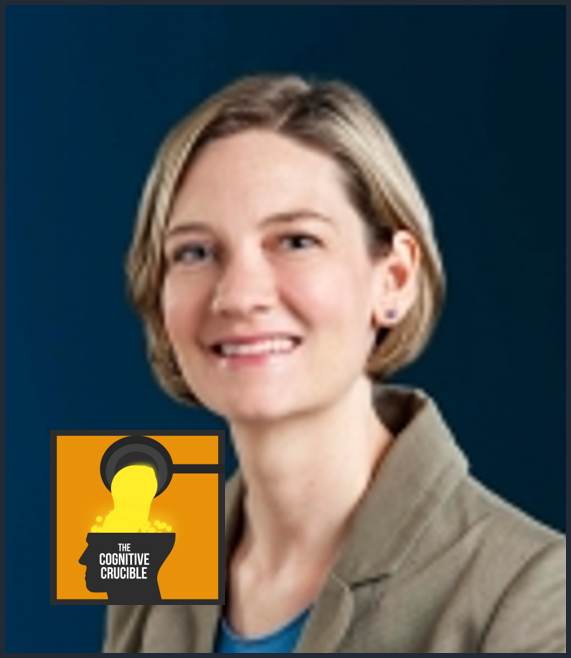
The Cognitive Crucible is a forum that presents different perspectives and emerging thought leadership related to the information environment. The opinions expressed by guests are their own, and do not necessarily reflect the views of or endorsement by the Information Professionals Association.
During this episode, Katie Carman discusses the most recent installment in RAND’s Truth Decay project: Individual Differences in Resistance to Truth Decay: Exploring the Role of Reasoning and Cognitive Biases. We discuss cognitive biases and how they affect decision making. The most consistent finding from her co-authored report was that greater numerical and scientific reasoning and lower magical reasoning were associated with greater resistance to Truth Decay.
Research Question: Creative, young minds should explore how to solve the Truth Decay problem? How can we experiment with new ideas in order to use information better? Can we come up with a new way of presenting information that will make it easier for people to identify facts?
Resources:
Link to full show notes and resources
Guest Bio:
Katherine Carman is a senior economist at the RAND Corporation, director of RAND’s Center for Financial and Economic Decision Making, and a professor at the Pardee RAND Graduate School. Her research focuses on behavioral economics, health economics, and public economics. Carman is particularly interested in how individuals’ beliefs, perceptions, and decision making processes affect their choices. Currently she is studying health behaviors, health insurance decisions, and retirement decisions. She has a number of projects studying the impacts of COVID-19. She is also interested in the effects of peer behavior and characteristics on individual choices.
Previously, Carman was an assistant professor at Tilburg University and affiliated with CentER and Netspar. She was a Robert Wood Johnson Scholar in health policy research at Harvard University. She received a Ph.D. in economics from Stanford University.
About: The Information Professionals Association (IPA) is a non-profit organization dedicated to exploring the role of information activities, such as influence and cognitive security, within the national security sector and helping to bridge the divide between operations and research. Its goal is to increase interdisciplinary collaboration between scholars and practitioners and policymakers with an interest in this domain.
For more information, please contact us at communications@information-professionals.org.
Or, connect directly with The Cognitive Crucible podcast host, John Bicknell, on LinkedIn.
Disclosure: As an Amazon Associate, 1) IPA earns from qualifying purchases, 2) IPA gets commissions for purchases made through links in this post.